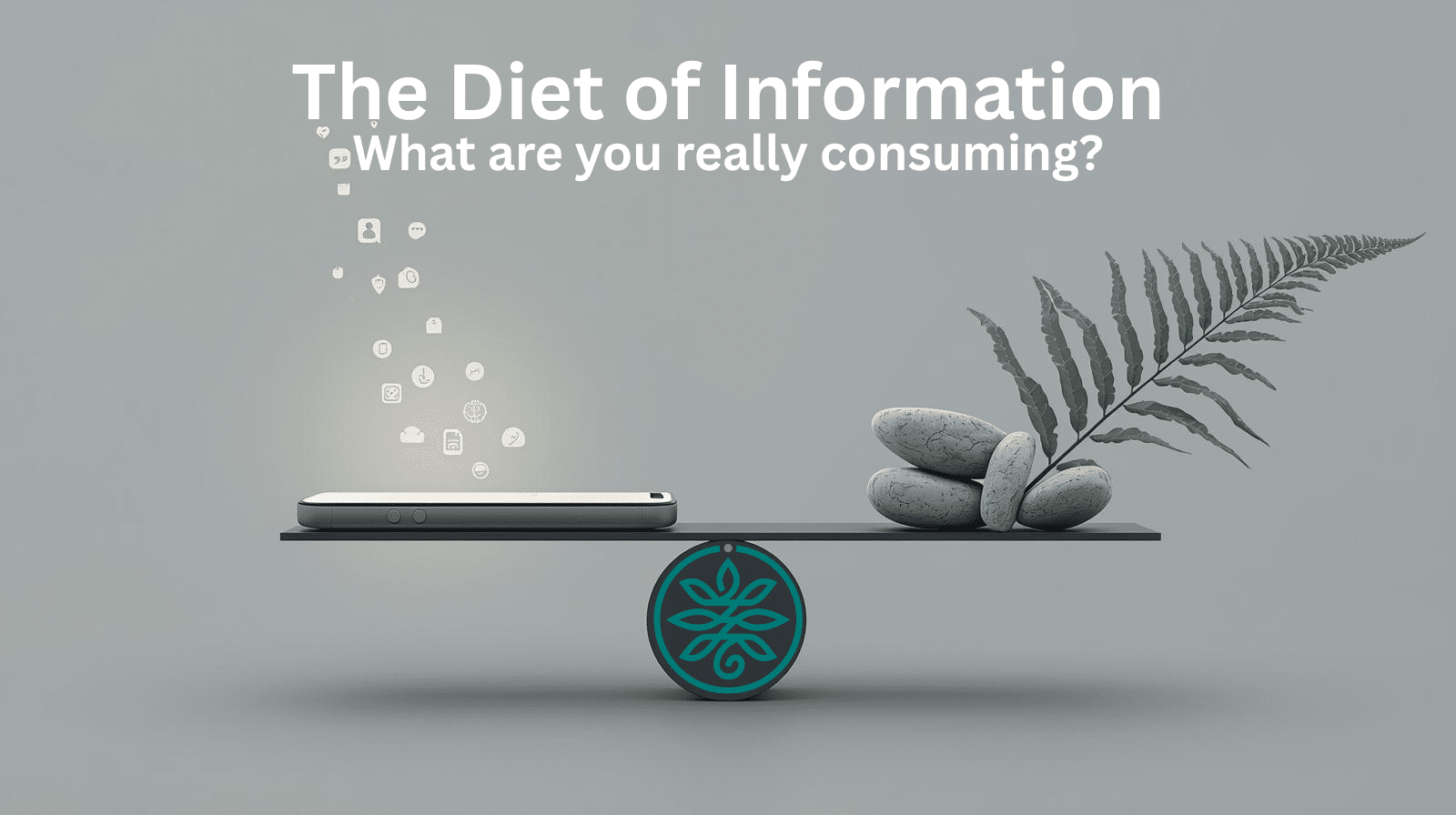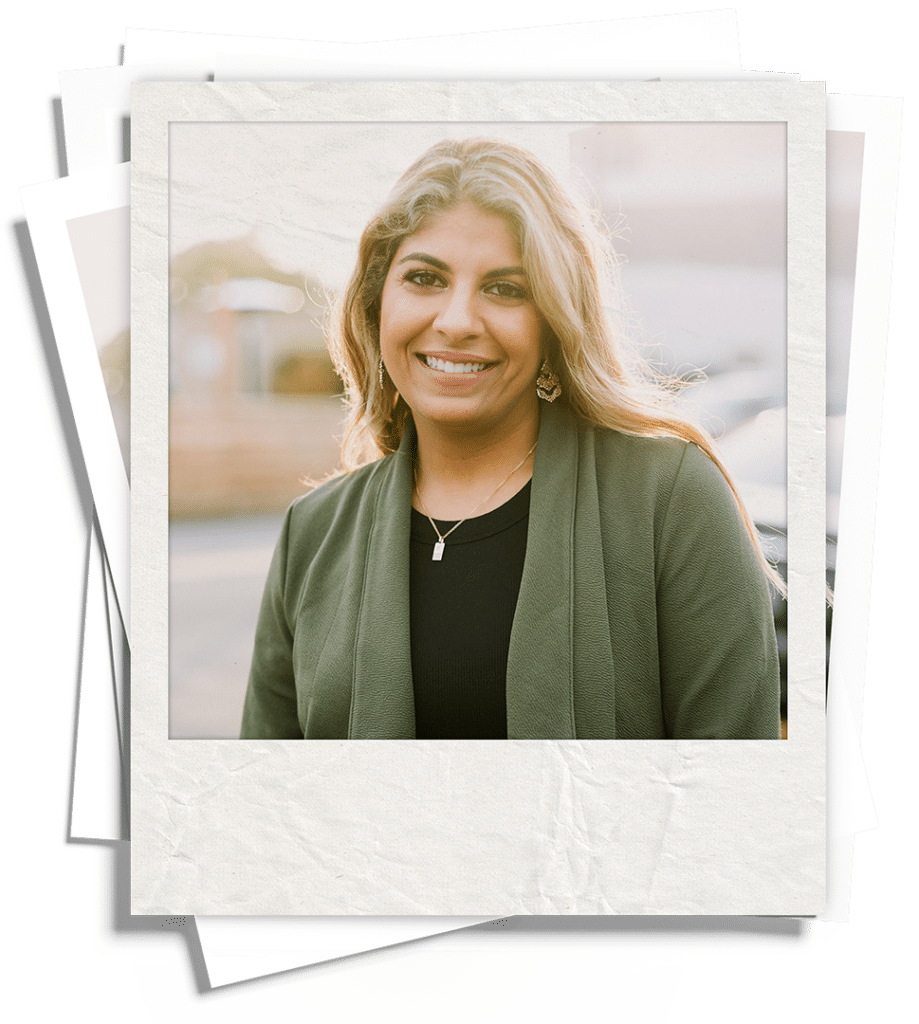You check your phone first thing in the morning and immediately feel anxious. A news alert about economic uncertainty, a social media post that makes you feel inadequate, a text from that friend who always complains. By 8am, you’re already emotionally drained. Sound familiar?
We live in an age of information overwhelm, yet most of us consume content as mindlessly as we might grab snacks throughout the day. And just like those snacks, our information diet has real consequences for our well-being.
The Invisible Diet We All Consume
Sugar is bad for you. Carbs are bad for you. Too much salt is bad for you. The “wrong” type of fat is bad for you. Cholesterol. Blood pressure. Heart rate. LDL. We all know these terms, and we know they’re either too high or too low. We take supplements, cut out foods, and track our physical intake because we can literally see the effects on our bodies.
But what about our diet of information and input? We’re constantly consuming things that affect us emotionally, mentally, and psychologically – yet we pay little attention to these inputs compared to our food choices.
These information inputs include:
- Who you communicate with daily
- Who you follow on social media
- What you read (books, news, magazines)
- What you watch on TV or streaming platforms
- What podcasts you listen to
- The conversations you engage in at work and home
All of these have a direct effect on our health, dictating our emotions, energy levels, and even our physical well-being.
The Real Cost of Toxic Inputs
Think about it: if you have a great conversation with someone, your mood is automatically lifted for the rest of the day, maybe longer. You’re happier, you smile more, you see the world through a more positive lens. Conversely, one negative interaction can seep into everything else, affecting your sleep, raising your cortisol levels, and influencing how you treat the next person you encounter.
I learned this lesson personally with a close friendship. I loved this woman like family – we had experienced so much life together. But she was consistently negative, and this pattern lasted for years regardless of the good things happening in her life. After phone calls, dinners, or even text exchanges with her, I would feel completely drained. Then I’d spend time venting my frustration to my husband, further amplifying the negative impact.
We had multiple conversations about this pattern over the years. I tried to be supportive while also expressing my need for more balanced interactions. Finally, I realized I could no longer allow this input to so drastically affect me emotionally, mentally, and yes, even physically – my blood pressure would spike after our conversations.
I had a choice: continue letting this person affect me negatively or choose to “unsubscribe.” After much consideration, I chose the latter and asked for space. It was one of the hardest decisions I’ve made, but I don’t have the same level of anxiety and negativity that I carried for years.
The transformation was remarkable. Within months, I noticed improved sleep, better interactions in my other relationships, and a general sense of lightness I hadn’t felt in years. This experience taught me that sometimes the most loving thing we can do, for ourselves and others, is to recognize when a relationship dynamic isn’t serving anyone well.
Becoming a Conscious Consumer
If you ate a meal that made you nauseous repeatedly, you’d stop eating it. You wouldn’t continue making yourself sick. Yet we rarely apply this same logic to our information consumption.
Take a quick assessment right now:
- How many people in your life do you genuinely look forward to talking with? When you see their name pop up on your phone, do you light up? Why do you love spending time with these people?
- Now, who are the people you ignore, take forever to respond to, or actively avoid? Why do you react this way? How do these interactions make you feel?
The same principle applies to media consumption. Many people get sucked into social media comparison traps – seeing what others are wearing, where they’re traveling, what they’re achieving. Then the negative spiral begins: “I’ll never be that successful. I’ll never look that good. I’ll never afford that lifestyle.”
You have a choice.
You can continue down this road, or you can actively choose to limit or eliminate these inputs. You can curate your scope of influence to include trusted sources and uplifting content.
This is what it means to be a conscious consumer of information.
Questions for Your Information Audit
When evaluating what you’re consuming and who you’re spending time with, ask yourself:
About Relationships:
- What value does this interaction bring to my life?
- How do I feel after spending time with this person?
- Do I need to decompress or vent after our conversations?
About Media Consumption:
- Am I consuming this content intentionally or just mindlessly scrolling?
- Will I remember or apply this information, or is it just mental clutter?
- Am I getting diverse perspectives, or am I in an echo chamber?
- Is this making me more informed and capable, or more anxious and paralyzed?
About Overall Impact:
- How does this affect my mood, relationships, and productivity?
- How might my life improve without this input?
- Does this align with my values and goals?
How to Start Your Information Diet
Here’s a practical approach to begin curating your inputs:
Week 1: Audit Track your information consumption for 24 hours. Note what you read, watch, and who you interact with. Pay attention to how each input makes you feel.
Week 2: Subtract Each day, unfollow, mute, or limit one negative source. This could be a social media account, a news source that consistently upsets you, or setting boundaries with a draining relationship.
Week 3: Add Replace the time you spent on negative inputs with positive ones. Follow accounts that inspire you, pick up a book that teaches you something valuable, or schedule coffee with someone who energizes you.
The Bottom Line
It’s important to remember that we can’t, nor is it healthy for us to, cut out everything that doesn’t fit into “positive vibes only” boxes. That’s unrealistic and would leave us disconnected from real-world challenges. The goal is to be much more intentional about what we consume and who we interact with, especially during difficult or transformational times.
If we don’t want to feel negative, anxious, or depleted after certain interactions or media consumption, we have to make changes.
We have to address the cause, not just manage the effects.
Your information diet shapes your thoughts, emotions, and ultimately your life. Just as you wouldn’t feed your body junk food every day and expect to feel great, you can’t feed your mind toxic inputs and expect mental wellness.
This week, I challenge you to audit just one area of your information diet. What will you choose to change?
Your future self will thank you for the investment in conscious consumption.
Continue the journey toward authentic living and personal and professional fulfillment – explore deeper insights on my Medium page and transformative content on YouTube.








